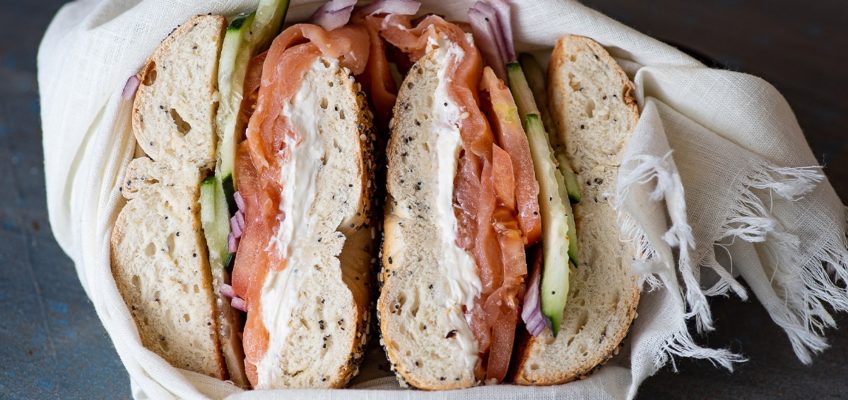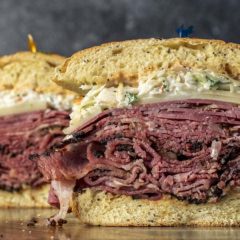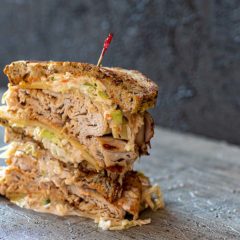In today’s socially conscious world, you’ve probably heard the terms sustainable and unsustainable thrown around to reach customers. That’s because more people are demanding eco-friendly products to be more responsible towards our environments and the ecosystems that live within them. Seafood is just one of the many industries that consumers expect more sustainably-sourced products. But, what exactly does that mean? Why should you be eating fish that was sustainably caught?
As one of Arizona’s most popular New York-Style delis, Chompie’s offers an array of deli favorites. Whether you are looking for kosher options or opting for a more traditional meal, we’ve got you covered. We also serve a variety of sustainably-sourced smoked fish like nova lox, whitefish, black cod, herring, and salmon. Read our blog post below to learn why eating sustainably is the right way to go when eating seafood.
What is Sustainably-Sourced Seafood?
If you’ve ever strolled through the seafood section of your supermarket, you’ve likely noticed a barrage of different certifications and labels highlighting products as “sustainable”. When packaging claims its contents as certified sustainable, it means that the fish was sustainably caught by either an organization, private company, or government agency. Each certification comes with its own requirements to get that bright shiny label on the package.
According to the U.S. government’s National Oceanic and Atmospheric Administration (NOAA), for seafood to be considered sustainable by law in the U.S., the fishery is supposed to “Consider social and economic outcomes for fishing communities, prevent overfishing, rebuild depleted stocks, minimize bycatch and interactions with protected species, and identify and conserve essential fish habitat.”
The Benefits of Eating Sustainably-Sourced Fish
Probably the biggest reason why people should eat more sustainably caught seafood is how it doesn’t jeopardize our environment. If you buy seafood that has been raised sustainably, it means the fish was sourced in a way that doesn’t damage or have an impact on the surrounding marine environment.
One example of this is how marine plants often are affected by bottom dredging, an incredibly unsustainable fishing method that removes silt and other material at the bottoms of water.
Another positive thing that comes out of eating sustainably-sourced seafood is how it doesn’t decrease the fish population. Sustainable fisheries and farms source their fish with practices that can maintain or increase the number of fish raised or sourced without depleting the global fish population.
In addition to feeling good that the fish are treated well, you can feel good physically. Sustainable fish tend to be much healthier for you than those caught unsustainably. A study by the University of Washington found that irresponsibly caught fish tends to pose more health risks than those sustainably-sourced. This may be due to the higher mercury levels and lower omega-3 levels found in unsustainable fish.
Lastly, sustainable fishing doesn’t hurt other marine species. Unsustainable fish are often caught or raised using methods that hurt or kill other marine life. It’s also fairly common for fisheries who use this method to dispose of wastewater, antibiotics, or uneaten fish feed into lakes, rivers, and oceans; causing illness and even death to surrounding marine life.
Chompie’s Only Serves Sustainable Fish
We take our fish seriously. And it starts with where the fish came from and how it was raised. We believe this leads to a better overall product for you and a better life for the fish.
Since 1979, Chompie’s has been the restaurant of choice for Arizonians looking for a New York Style food that serves items like bagels, mile-high sandwiches, salads, and colossal Ruebens. We are proud of our long history of service and look forward to creating experiences you won’t forget. Visit one of our locations today and see why we’ve become one of Arizona’s favorite delis to date.














